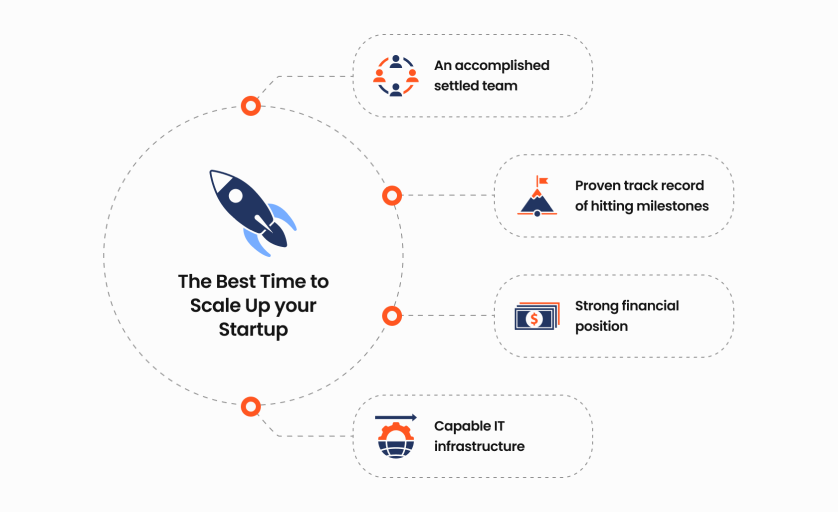🚀 Introduction
You’ve validated your startup idea, gained some traction, and are ready to grow — but scaling a startup is not just about more sales or hiring rapidly. It’s about sustainable growth, financial discipline, and strategic planning. That’s where a Chartered Accountant (CA) becomes more than just a tax advisor — they become a growth partner.
In this blog, we’ll explore how a CA can help you scale your startup effectively, avoid the common financial traps, and make data-driven decisions that lead to long-term success.
📉 Why Startups Fail Financially
According to CB Insights, 38% of startups fail due to running out of cash. But running out of money is often a symptom, not the cause.
The real causes include:
- Poor financial planning
- Inaccurate forecasting
- Lack of cost control
- Scaling before product-market fit
- Mismanaged investor funds
These are areas a qualified CA can safeguard you against, with the right systems and insights.
📌 Key Areas Where a CA Helps During Startup Scaling
1. Financial Forecasting & Business Planning
As your startup grows, so do your expenses — hiring, marketing, product development, and infrastructure. A CA helps you:
- Prepare realistic financial projections
- Model best, average, and worst-case cash flow scenarios
- Align spending with revenue milestones
- Set up a proper burn rate vs runway tracking system
💡 Pro Tip: Many investors today ask for detailed cash flow forecasts. Having a CA onboard gives you an edge during due diligence.
2. Investor Readiness & Fundraising Support
Raising external capital? Your CA is vital in:
- Creating investor-ready financial statements
- Performing pre-due-diligence checks
- Helping you understand valuation methods (DCF, comparables, etc.)
- Building cap tables and ESOP structures
- Guiding term sheet negotiations (alongside a legal expert)
🧠 A CA can help you avoid over-diluting your equity and ensure funds are accounted for per SEBI/ROC guidelines.
3. Cost Control & Expense Monitoring
Startups often burn cash fast, especially in early growth stages. A CA brings discipline to your expense structure:
- Sets up a monthly cost review process
- Analyzes spend vs ROI on marketing and operations
- Flags areas of leakage or overspending
- Helps implement approval workflows and budgets
📌 Fun Fact: Even tech unicorns like Ola & Zomato brought in CFOs early to control burn while scaling.
4. Structuring Scalable Accounting Systems
As your startup scales, spreadsheets won’t cut it. A CA helps you:
- Migrate to proper cloud-based accounting software (Zoho Books, QuickBooks, TallyPrime, etc.)
- Set up automated invoice systems, payroll, GST returns, and vendor payments
- Build a scalable reporting dashboard for founders and investors
Your CA ensures compliance is handled smoothly even as your transaction volume grows 10x.
5. Tax Planning & Statutory Compliance
Scaling businesses face a more complex tax landscape:
- TDS, GST, advance tax, audit reports
- Inter-state sales, input tax credit reconciliation
- Tax benefits under Section 80-IAC for startups
- Setting up transfer pricing if you scale globally
A proactive CA ensures your startup doesn’t pay unnecessary taxes or penalties, and uses every available benefit.
6. Business Structuring & Re-structuring
As you scale, you might:
- Add co-founders or investors
- Expand into international markets
- Launch subsidiaries or joint ventures
A CA helps you choose the right business structure (Pvt Ltd, LLP, holding-subsidiary model, etc.), ensuring legal and tax efficiency.
7. Due Diligence for Mergers, Acquisitions, or Exits
If you plan to sell or merge your startup later, financial hygiene is crucial. Your CA:
- Prepares due diligence documents
- Ensures clean books
- Identifies liabilities in advance
- Assists in valuation and negotiation support
Startups with messy books or unknown liabilities often lose deals — or settle for lower valuations.
🛠️ Real-Life Example
Imagine a SaaS startup scaling to ₹1 Cr ARR. Without a CA:
- Founders overspend on ads without ROI tracking
- TDS penalties stack up
- GST input credit worth ₹5 lakhs is lost due to missed filing
- Angel funding gets delayed due to non-compliant financials
Now imagine the same startup with a CA:
- Proper monthly reporting in place
- Costs aligned with customer acquisition
- Clean balance sheet ready for investor review
- Tax planning saves ₹3–4 lakhs per year
That’s the difference.
📈 When to Onboard a CA?
- Immediately after company incorporation for compliance setup
- Before your first funding round to set up reporting and tax structure
- When crossing ₹25L+ in annual revenue or operating across states
- If expanding globally or adding co-founders
Early-stage startups may start with freelance or part-time CAs, and later onboard full-time CFOs or senior finance consultants.
✅ Final Thoughts
Scaling a startup isn’t just about pushing sales — it’s about building systems that can sustain growth, handle complexity, and stay compliant. A Chartered Accountant is not just a backend number cruncher — they’re a key strategist who can save you money, protect you from regulatory trouble, and give your investors confidence.
So if you’re serious about scaling your startup, don’t wait for problems to hire a CA — bring one in to prevent them.


